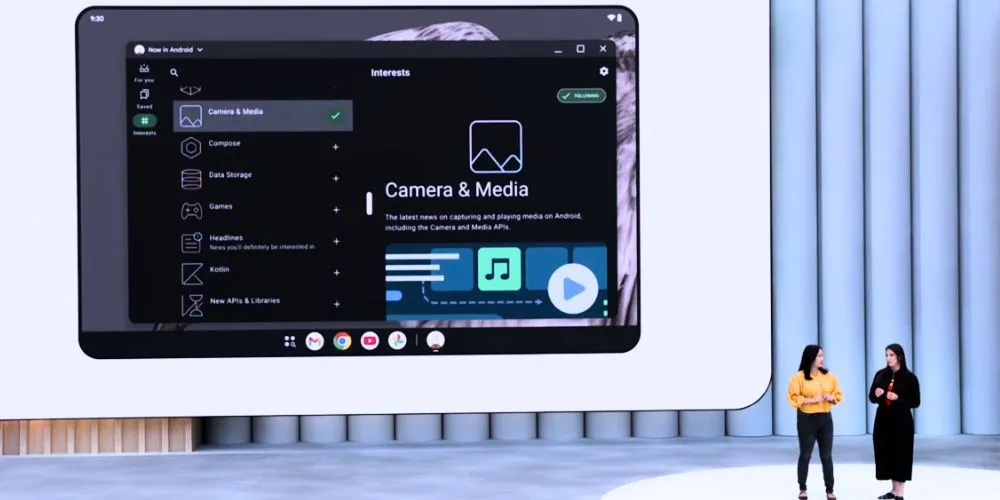Key Points
- Android 16 adds a desktop-style interface for external displays—a feature developed with Samsung, building on Samsung DeX.
- It supports resizable windows, a desktop dock, and adaptive app behavior. Depending on OEM support, it works on phones and tablets.
- Now, it is in developer beta, with a full rollout expected in June 2025.
- Part of a broader set of announcements at Google I/O 2025, focused on AI and productivity.
Google is introducing a significant new feature in Android 16 that allows smartphones and tablets to run a desktop-style interface when connected to an external display. This functionality, first hinted at in early betas, was officially confirmed during the company’s I/O 2025 developer keynote.
Developed in collaboration with Samsung, the feature builds on the groundwork laid by Samsung DeX, which allowed certain Samsung devices to simulate a desktop interface via an external monitor. With Android 16, Google is standardizing and integrating this capability into the core operating system.
The new interface features resizable app windows, a desktop-like dock for frequently used apps, and an overall layout optimized for productivity on larger screens. Google says the system is aimed at both phones and tablets and emphasizes the need for adaptive apps that adjust seamlessly between mobile and desktop environments.
While Android 16 introduces official support for desktop windowing, its effectiveness will still depend on device manufacturers enabling it and app developers optimizing their software for resizable windows. This evolution signals Google’s ongoing commitment to multi-device continuity and enhancing the productivity capabilities of Android-powered hardware.
Currently, the developer beta of Android 16 is available for select devices, with a public release expected in June. Users with compatible phones and tablets will soon experience this new feature firsthand, assuming OEMs like Samsung, Google, and others implement it in their firmware.
This upgrade comes amid a broader showcase of innovations at Google I/O 2025, including tools like Flow, an AI movie generator, real-time translation in Google Meet, virtual clothing try-ons, and new AI features for Project Astra. These updates collectively highlight Google’s push toward AI integration and cross-device experiences.





